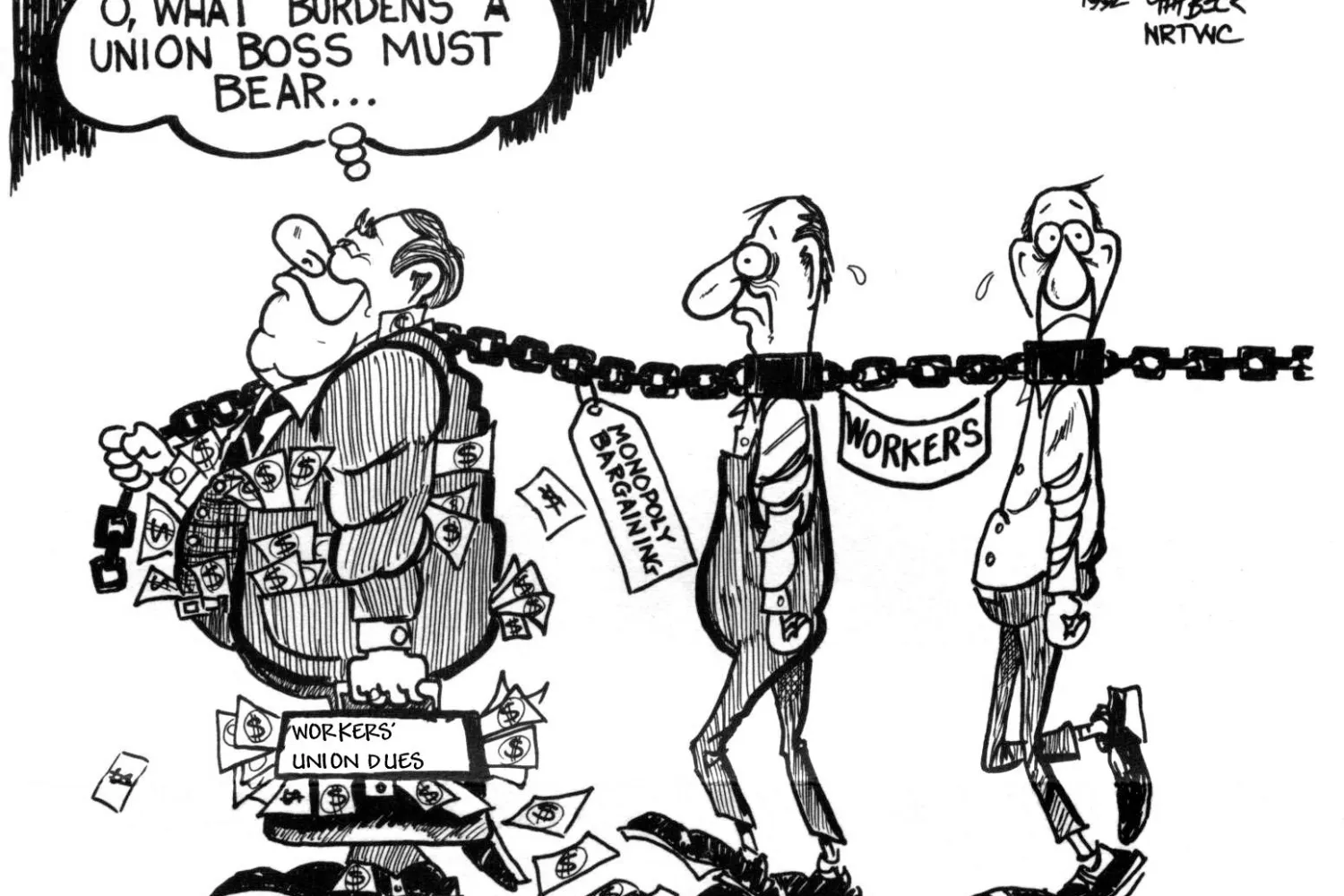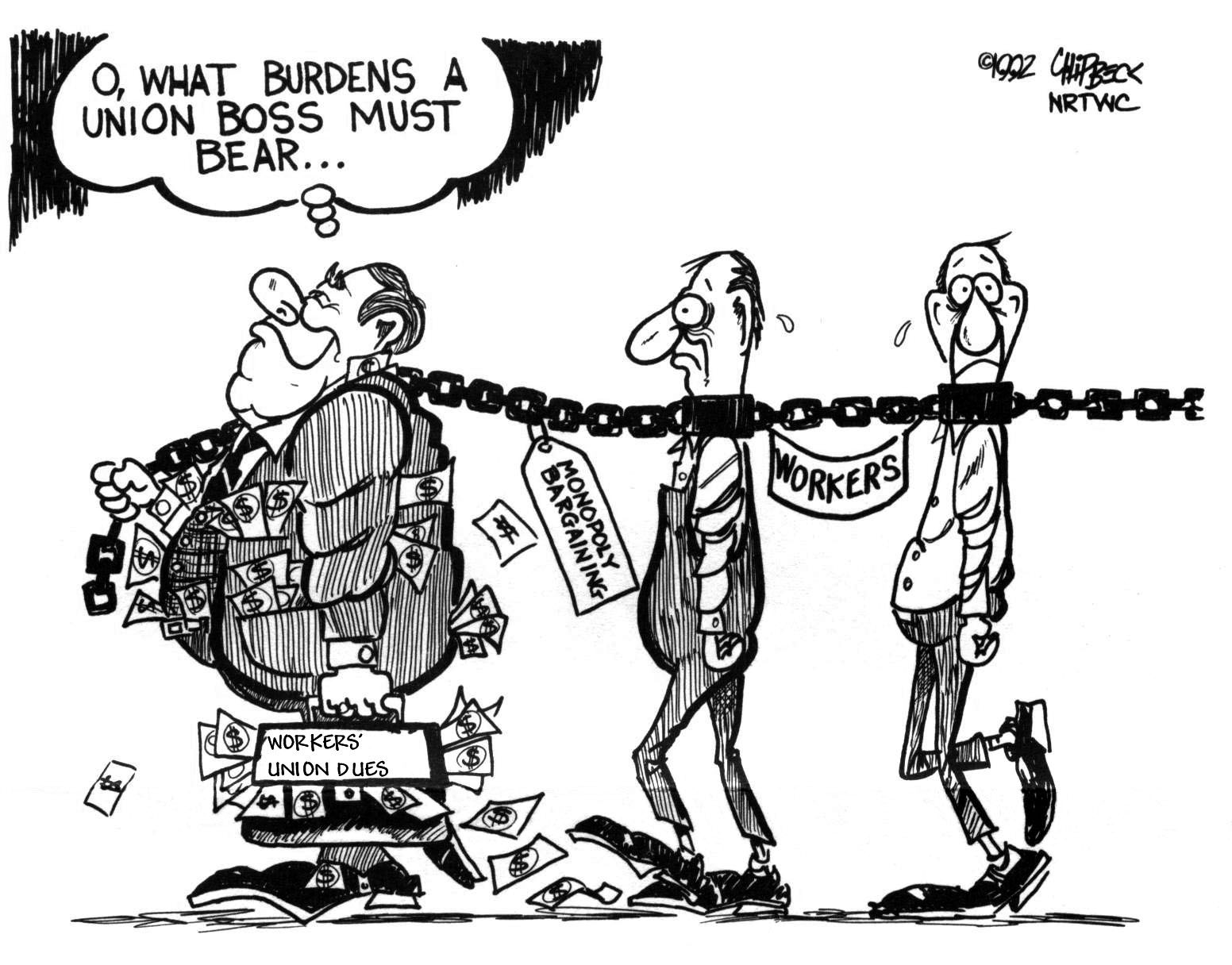‘The Net Result of the Union’s Dispute Is That Some of Its Members Will Have Their Raises Rescinded’


Big Labor propaganda presupposes that every single worker who is subject to union monopoly bargaining benefits economically thereby. But for vast numbers of unionized workers this presupposition is false, as a recent federal court case emanating from northwestern Pennsylvania unambiguously illustrates.
Whenever they are seeking to justify compulsory union dues and fees, Big Labor bosses and their allies routinely assume, without acknowledging they are making an assumption, that every single worker who is subject to union monopoly bargaining is better off economically as a result of this fact. Workers who prefer not to join a union should nevertheless be forced to pay union fees that may be as high as full union dues in order to compensate Big Labor for the presumptive “benefits” of monopoly bargaining.
Even if it were actually the case that all workers under so-called “exclusive” union representation benefited from it economically, this would be dubious grounds for forcing employees who never asked for a union to bankroll it. A worker may find the political and ideological stands taken by a union to be so offensive he or she wants not to support it in any way, regardless of what kind of job contract it negotiates. Under the American constitutional system, workers should retain the right not to bankroll a union whose public positions they vigorously oppose.
But aside from that fact the presupposition that union monopoly bargaining is a net economic benefit for all employees is patently false. For example, roughly three decades ago, pro-forced unionism economist Richard Freeman bluntly acknowledged that union officials had been “remarkably successfully” in blocking pay schemes that reward unionized employees for achieving higher-than-average productivity. Though Freeman did not make the connection, his finding inevitably means that many talented and conscientious employees get paid less, rather than more, because they are under a union contract.
There is ample evidence that Freeman’s observation continues to hold true today. One recent and compelling example was discussed by the Heritage Foundation’s James Sherk in a blog post for National Review’s Corner the other day, linked above.
A collective-bargaining agreement still covers every worker under one contract — ignoring individual contributions. . . . In today’s economy where most employers see employees as valuable “human resources†it often holds workers back.
Union members at the Giant Eagle grocery store in Edinboro, Pa., learned this the hard way. The store gave two dozen industrious employees raises above their union pay scales. United Food and Commercial Workers Local 23 objected that this would permit some newer hires to make more than senior members. The union took the store to court.
Last November the District Court sided with Local 23 and ordered Giant Eagle to cut the workers’ pay. As the Judge noted: “The net result of the Union’s dispute is that some of its members will have their raises rescinded — in other words, the action of the Union in the arbitration will have the effect of taking away raises of certain members, thereby causing harm to its own members.â€
Union monopoly bargaining harms vast numbers of employees economically, often, as in the case Sherk cites, by actually cutting their wages or salaries. Right to Work laws do not directly prevent such abuses, but they at least prevent Big Labor form pouring salt in good workers’ wounds by forcing them to pay dues or “agency” fees to the union that is lowering their paychecks. That’s a significant step in the right direction.

